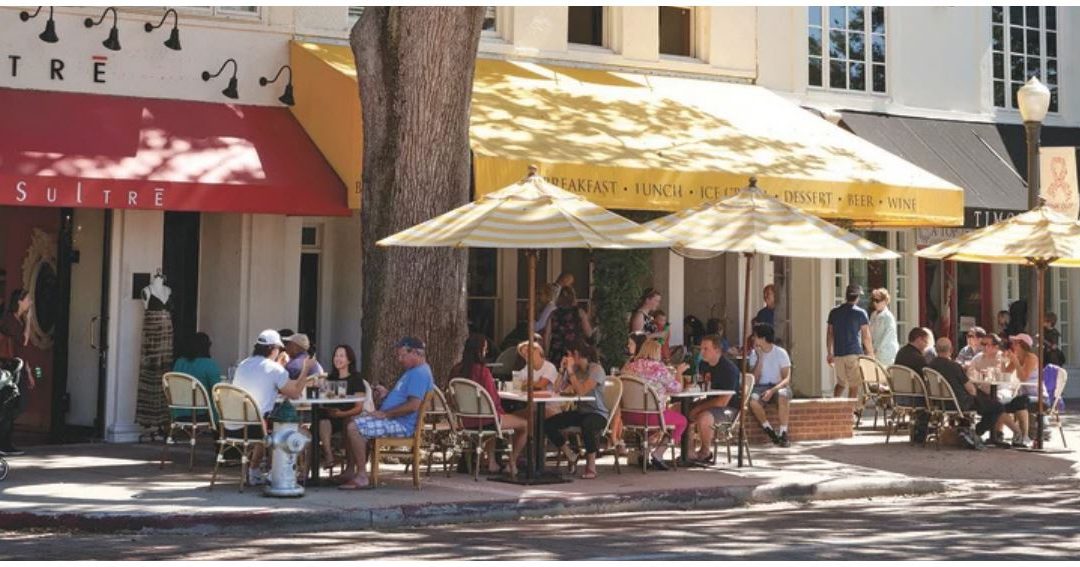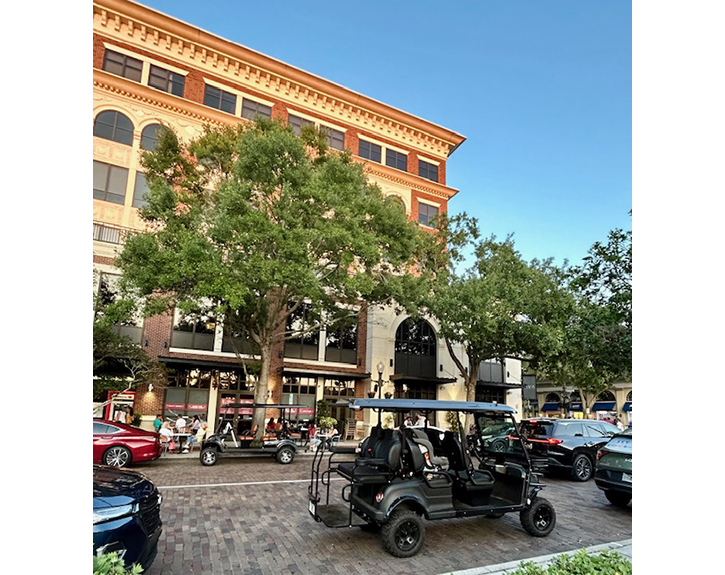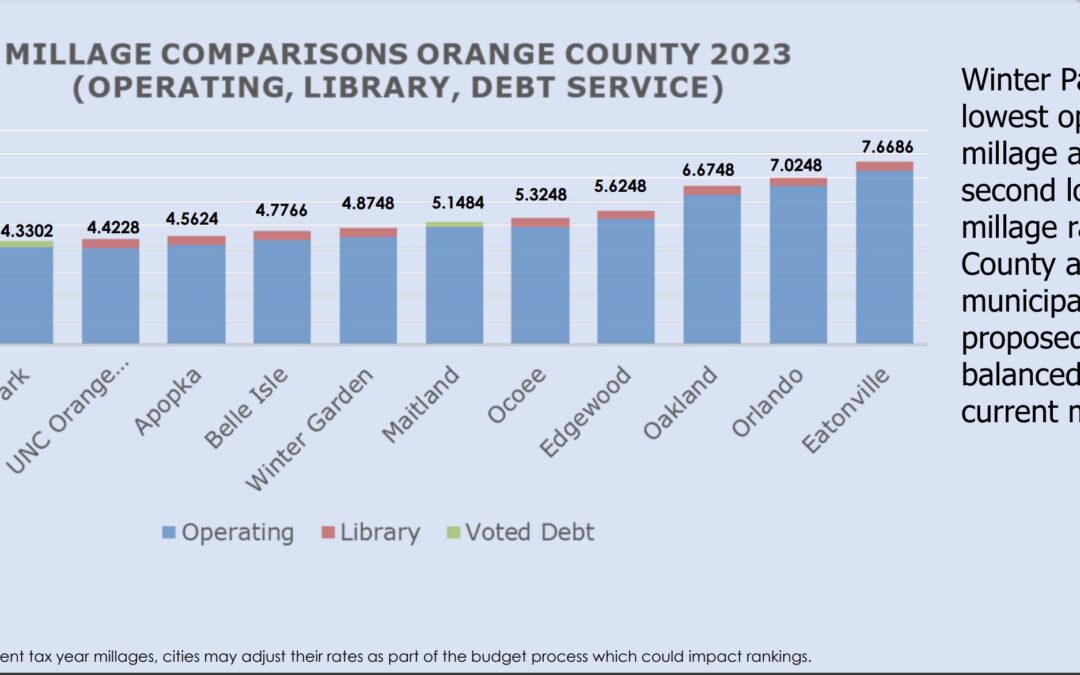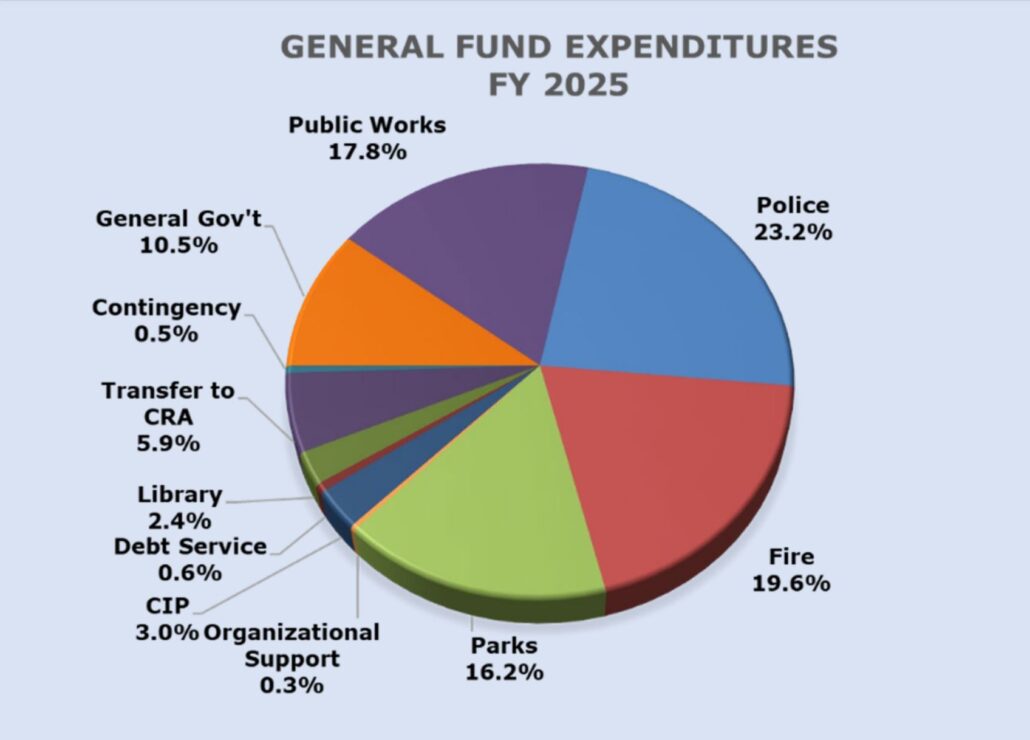
by Beth Kassab | Jul 25, 2024 | Election, News, Uncategorized
Let us hear your questions for County Commission District 5 candidates
The four candidates for the seat that represents Winter Park will appear at a public forum on Aug. 6
July 24, 2024
Staff Report
Voters will have the chance to hear directly from Orange County Commission candidates for District 5, which represents Winter Park, at a public forum on Aug. 6 at Westminster Winter Park.
The event at 7 p.m. is sponsored by the Orange County League of Women Voters and will be moderated by Winter Park Voice Editor Beth Kassab. Doors will open at 6:30 p.m. at Westminster, 1111 S. Lakemont Ave.
The public can also tune in live to watch the forum or watch a recorded broadcast on the League’s Facebook page. 
What questions do you have for the candidates who will be on the Aug. 20 ballot? You can leave them in the comment section below or email WinterParkVoiceEditor@gmail.com.
Vying for the technically non-partisan seat are: Former Maitland City Council member and former legislator Joy Goff-Marcil; former Winter Park Mayor Steve Leary; attorney Joel Antonio Montilla and Kelly Semrad, a UCF associate professor of tourism economics.
Key issues in the race include how to spend the county’s Tourist Development Tax, a levy on hotel beds; how to protect rural lands; policies for improving the region’s overcrowded roads and other transportation woes and more.
The winner will replace Emily Bonilla, who has reached term limits for her seat.
If none of the four candidates receives 50% plus one of the vote in August, then the top two vote getters will face off in November.
What else is on your Aug. 20 ballot? Take a look here.
Requests to cast a mail ballot must be made by Aug. 8 at 5 p.m.
The Orange County Supervisor of Elections office reported that it has received more than 90,000 requests for mail-in ballots so far. That is below the 214,555 requests for the primary in 2020 and 195,935 in 2022.
The lagging number this year is the result of a change in state law by the Florida Legislature, which now says that vote-by-mail requests expire after each federal election cycle and voters must re-submit those requests.
WinterParkVoiceEditor@gmail.com
To comment or read comments from others, click here →

by Beth Kassab | Jul 24, 2024 | City Commission, News, Uncategorized
Winter Park lifts prohibition on Sunday morning alcohol sales
For years, the city has restricted the sale of alcohol on Sunday mornings until after 11 a.m.
July 24, 2024
By Beth Kassab
Winter Park grocery stores and restaurants offering a boozy brunch can soon get an earlier start on Sunday mornings.
The City Commission voted 4-1 to allow alcohol sales as early as 7 a.m. rather than 11 a.m., making the time consistent with the other six days of the week. Commissioner Craig Russell was the only dissenting vote.
Mayor Sheila DeCiccio said the change was prompted by grocery managers who complained about routinely confused and disappointed customers who stopped in early on Sundays to stock up for a day at the beach or a football party only to learn they had to come back later for beer and wine.
Planning & Zoning Director Allison McGillis said Maitland, Orange County and Seminole County all allow sales as early as 7 a.m. Orlando is an outlier with a 9 a.m. start time. A few years back, Winter Park prohibited liquor sales until noon, but the city changed the restriction to 11 a.m. to accommodate the mimosa and Bloody Mary crowd at local brunch spots.
A grocery store manager, who declined to say where he worked, spoke at the meeting in favor of the new earlier time.
“I have personally witnessed friends planning for beach outings, football or Mother’s Day and they can’t do the shopping,” he said. “Many employees and customers have asked why and I haven’t been able to give a good reason.”
Russell, in casting a vote against moving sales up to 7 a.m., said he saw no need for the change.
“I have a belief that Sunday is a day of rest. I say leave it alone,” he said. “… I wouldn’t’ look to compromise my principles on agreeing to something like this.”
Winter Park to keep property tax rate the same
Commissioners voted Wednesday to hold the same property tax rate for the 17th year in a row.
That means the millage rate will remain steady at 4.0923 mills, though tax revenue will increase because of rising property values. The proposed $214.6 million budget includes a 3% or $6 million increase over the current year as property taxes remain the key driver of growth in the city’s general fund.
WinterParkVoiceEditor@gmail.com
To comment or read comments from others, click here →

by Beth Kassab | Jul 17, 2024 | City Commission, News, Uncategorized
Golf carts are fun, but are they street-legal in Winter Park?
Here’s what to know to about legal low-speed vehicles and how to avoid fines up to $500
July 17, 2024
By Charles Maxwell
Once only used along Central Florida’s fairways and greens, golf carts are now commonplace on Winter Park’s brick roads.
Residents like Jason Bristol find them a quick and easy way to travel to Park Avenue or even to Park Maitland School.
“I bought my first one back in 2005, and I’ve owned a total of five,” said Bristol, who lives in Baldwin Park. “I’ve been using it so long, I know all the backroads and take it everywhere- I’ve even valeted it downtown (in Orlando).”
But not everyone is as educated as Bristol when it comes to using the street legal version of golf carts known as low-speed vehicles.
That left city officials on a years-long campaign to make people aware of the difference and, more recently, for Mayor Sheila DeCiccio to ask the city attorney for a report on potential liability related to golf cart accidents.
Winter Park police chief Tim Volkerson and the department are actively working to remove golf carts from Winter Park roads.
“We went through a period of time where there was an influx of [illegal] golf carts being operated on the roadway,” Volkerson said. “While I do not have specific numbers, the agency did conduct an enforcement/education period, which was successful in reducing those operating golf carts on the roadway.”
The city posted a guide for residents to help them understand the differences between the legal and the illegal versions. Drivers can face up to $500 fines for operating an illegal cart on the roadway.
The street-legal kind must have a Vehicle Identification Number and features such as a seat belt for each seat, brake lights, turn signals, side mirrors and a windshield. Owners are required to have insurance and register the vehicles and operators must have a driver’s license.
They are permitted on city streets with a speed limit of 35 mph or less.
Standard golf carts don’t have all of those features, can be driven by anyone 14 and older and in most cities like Winter Park, can only be used on golf courses. (Some places, like the Villages, allow golf carts on roads.)
Volkerson says there have been no cases of severe injury or death involving a golf cart in Winter Park. But DeCiccio has monitored the situation closely and heard complaints from some residents about golf carts and LSVs.
In an article DeCiccio published last fall, she noted “the most common observation is the reckless driving and age of the drivers and occupants,” with residents claiming to have seen minors operating LSVs, with as many as six people per cart.
Bristol, who owns a street-legal cart and has five kids, said his family now much prefers taking their six-passenger LSV around town over their car.
And he’s noticed plenty of other people seem to have the same idea. Once one of only a few residents with an LSV in his neighborhood, he’s noticed their use on the rise: “Literally everyone has them now.”
WinterParkVoiceEditor@gmail.com
Charles Maxwell graduated from Winter Park High School and Florida Atlantic University with a BA in Multimedia Studies. His work has appeared in the South Florida Sun Sentinel and The Boca Raton Tribune, and he is a contributing writer for Keeping it Heel on the FanSided network. He enjoys watching sports, finding new food spots, and playing pickleball with friends and family.
To comment or read comments from others, click here →

by Beth Kassab | Jul 13, 2024 | City Commission, News, Taxes, Uncategorized
City budget talks kick off with modest increase in spending proposed
Commissioners will be called on to set priorities in coming weeks
July 12, 2024
By Beth Kassab
Residents got a first glimpse at next year’s city budget — a $214.6 million proposal with a 3% or $6 million increase over the current year as property taxes remain a key driver of growth in the general fund.
The plan calls for the city to maintain the same property tax rate its held for 16 years, though residents will see additional fee increases for trash pick-up as a result of a contract negotiated last year and there are signals pointing to more fee increases for other services ahead.
Public safety remains the biggest expenditure in the general fund, rising from about 35% in 2024 to more than 42% in the new budget. The increase comes with four new proposed positions, including two new firefighters/emergency medical technicians, a fire logistics manager and a police grant and accreditation manager that will be upgraded from a part-time to a full-time position.
While inflation continues to put pressure on wages and building costs, the city’s general fund will see almost 7% growth to nearly $83 million as a result of increases in home values, fees for services and Winter Park’s share of the state sales tax. Other funds are flat or seeing declines.

The city’s proposed budget shows where dollars are coming from in the general fund. Source: City of Winter Park budget documents
The water utility, for example, is expected to see declining cash flow as inflation pushes up the costs to maintain the system, according to the budget presentation. The water rates customers pay are driven by the state’s regulatory agency called the Public Service Commission, but the index for regular increases are “are likely insufficient to handle future demand for investment,” the presentation said.
In addition, the city-owned electric utility will “likely need to consider a rate increase” next year due to higher costs within the power portfolio.
Also at play is the future of the city’s Community Redevelopment Agency, which uses a portion of county tax dollars to fund projects in a special district that covers downtown. The city is looking to the county to extend the CRA (which otherwise would sunset in four years) and expand its borders, but the Orange County Commission has yet to take up the matter.
Overall, there are about $126 million worth of projects in the city’s 25-year plan that don’t currently have a funding source attached to them. That means commissioners will need to continue to set priorities and make choices about how to manage the competing interests that come from wanting to maintain relatively low property taxes and fees for residents with improving services, infrastructure and amenities.
The proposed budget set aside a contingency of about $450,000, roughly the same as last year. The city’s reserves are expected to grow to about $21.2 million or about 27% of the recurring annual operating costs in the general fund, the proposal says. It would take about $2.7 million more to reach the goal of 30%.
WinterParkVoiceEditor@gmail.com
To comment or read comments from others, click here →

by Beth Kassab | Jul 2, 2024 | City Commission, News, Uncategorized, Zoning and Development
Medical office approved on corner of Aloma and Lakemont
The project led by a group of physicians will bring development to the long vacant lot
July 2, 2024
By Beth Kassab
A new medical office building will stand at the empty corner at Lakemont and Aloma avenues after the City Commission unanimously approved the project with conditions late last month.
Residents objected to the height of the building and raised questions about traffic, particularly left-hand turns, but commissioners settled on conditions that they said would alleviate many of the concerns.
The nearly 18,000-square-foot proposal for the two-story building came after Verax Investments purchased the land from Fifth Third Bank earlier this year for about $2.7 million, according to property records. Verax is a real estate development group led by a group of local physicians including Dr. Ravi Gandhi, a well-known brain surgeon with Orlando Neurosurgery.
The development will herald a major change for the last wooded parcel of the intersection.
“We all know that SR 426 is broken,” said resident Beth Hall. “Please don’t let this be the commission that breaks Lakemont.”
The developers agreed to preserve two live oak trees on the property.
They also agreed to build a 6-foot high wall on the edge of the property that backs up to residential lawns and the wall must be constructed before the building is started.
Among other conditions, the developers will also post signs prohibiting left-hand turns out of the property and give over a strip of the land to the city to eventually widen Lakemont. .
WinterParkVoiceEditor@gmail.com
To comment or read comments from others, click here →

by Beth Kassab | Jul 1, 2024 | Election, News, Uncategorized
What's on the Aug. 20 ballot in Winter Park?
There’s big focus on November because of the presidential election, but August is key for local races
July 1, 2024
By Beth Kassab
With so much attention already on November because of the presidential contest, it’s important for Winter Park voters to know Aug. 20 is just as crucial of an Election Day when it comes to deciding how your local tax dollars are spent or how our schools and our elections are run.
The way the August primary works in Florida can be something of a mystery even for those of us who have lived here for a while. A series of state and local rules determine whether races are decided in August or November based on whether the races are partisan and how many candidates are running.
Here’s a preview of what to expect on the Winter Park ballot and keep following the Voice for more coverage of these Orange County races:
You are likely already hearing about (and being asked for money) for the most competitive races heading into August.
They are:
Orange County Commission District 5: This is a technically non-partisan seat that is open because current Commissioner Emily Bonilla, who represents Winter Park, has reached her term limits. The candidates are: Former Maitland City Council member and former legislator Joy Goff-Marcil; former Winter Park Mayor Steve Leary; attorney Joel Antonio Montilla and Kelly Semrad, a UCF associate professor of tourism economics. If none of the four candidates receives 50% plus one of the vote in August, then the top two vote getters will face off in November.
Supervisor of Elections: Glen Gilzean, who was appointed to the post earlier this year by Gov. Ron DeSantis after longtime Supervisor Bill Cowles left the job early, decided not to run. Vying for the now open partisan seat as registered Democrats are current School Board member Karen Castor Dentel, former Orange County Democratic chairman Wes Hodge, attorney Dan Helm and “Sunshine” Linda-Marie Grund, a real estate broker. Cynthia Harris, a non-profit executive who has also served as chairwoman of Valencia College Black Advisory Committee, according to her LinkedIn profile, qualified as a candidate without a party affiliation. Because there is an NPA candidate in the race, only registered Democrats can vote in August on the Democratic candidates. Then the winner will face Harris in November.
Tax Collector: Scott Randolph, the incumbent, and David Nelson Freeman qualified as Democrats for the partisan seat. Dennis Spencer Levy also qualified as a write-in candidate. Once again, because there is a write-in candidate, the August primary will be only for — and likely decided by — registered Democrats. The winner will appear on the November ballot with the write-in candidate.
School Board District 6: This seat, which represents Winter Park, is open because Castor Dentel is leaving to run for Supervisor of Elections. The candidates are Jeni Grieger, a former teacher, and Stephanie Vanos, an education advocate. Because this is a nonpartisan race and there are only two candidates, it will be open to all voters and will be decided in August.
Property Appraiser: Amy Mercado, the incumbent, and Kevin Pribell are the only candidates in the race and both are Democrats. As a result, the ballot will be open to all voters and decided in August.
State Attorney: Andrew Bain was appointed by DeSantis after the governor suspended Monique Worrell from office. Bain is running as an NPA and Worrell is running as a Democrat. In November, they will face whoever wins the August closed Republican primary. The Republican candidates are Thomas Feiter and Seth Hyman.
Public Defender: Bob Wesley is retiring from this post after 24 years, leaving the seat open. Melissa Vickers, a 21-year veteran of the office and former chief assistant, and Lenora Easter, also a former public defender in the district, are both running as Democrats. As a result the race is open to all voters and will be decided in August.
Automatically elected because of no opposition:
Clerk of Courts: Tiffany Moore Russell, the incumbent, is the only candidate who qualified and is automatically elected.
Comptroller: Phil Diamond, the incumbent, is the only candidate who qualified and is automatically elected.
Sheriff: John Mina, the incumbent, is the only candidate who qualified and is automatically elected. This is the first time an incumbent sheriff ran unopposed in Orange County since 2000.
WinterParkVoiceEditor@gmail.com
To comment or read comments from others, click here →









Recent Comments